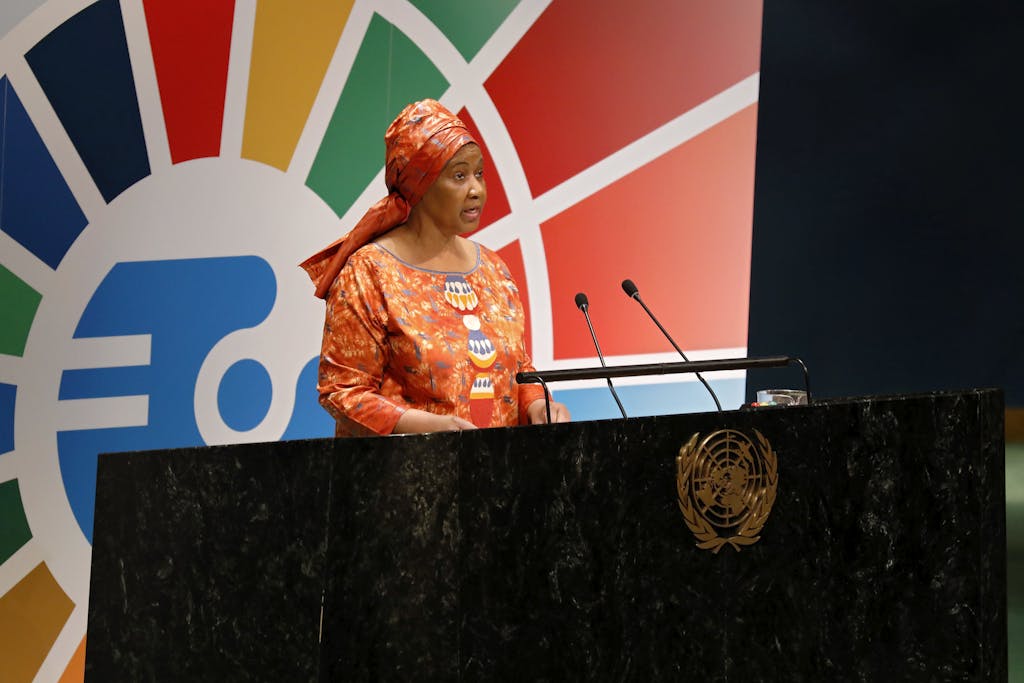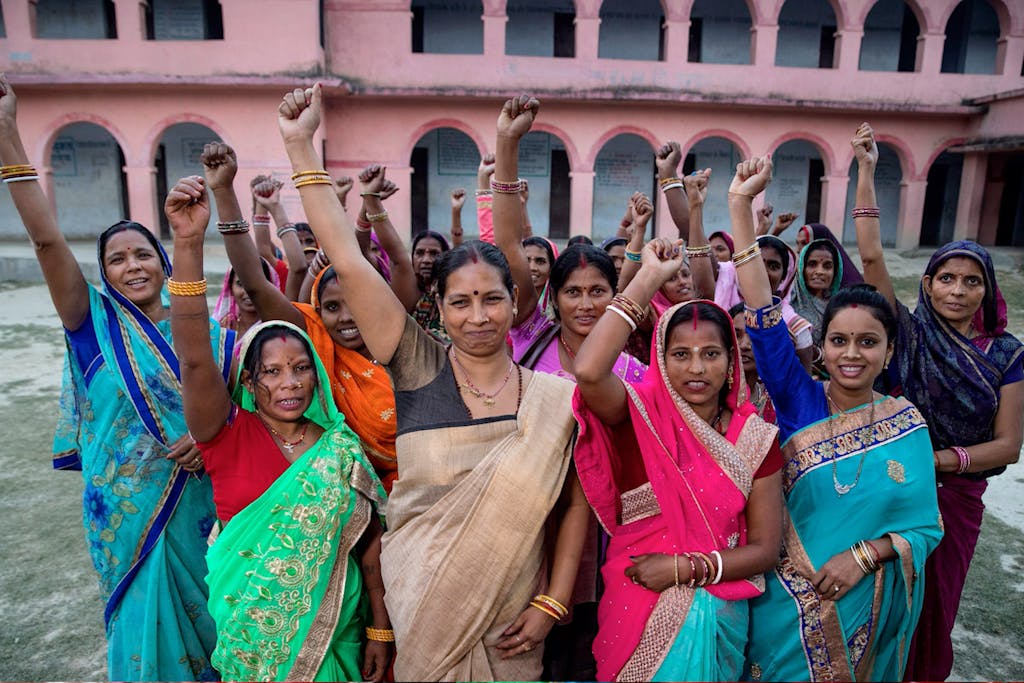Last week more than 10,000 feminists met — virtually — at the Mexico City Generation Equality Forum (GEF) to rally around a global gender equality plan that is, as UN Women Executive Director Phumzile Mlambo-Ngcuka put it, “ambitious and just.”
It’s time for ambition and justice. In fact, long past it. Generation Equality, a successor to the 1995 Beijing Declaration and Platform for Action, convened by UN Women and co-hosted by the governments of Mexico and France, offers a singular opportunity for the world to create together a high-impact and specific plan for gender equality. The plan is brought to life by six Action Coalitions that are taking on urgent issues, ranging from Gender-based Violence (GBV) to Feminist Movements and Leadership, and Technology and Innovation for Gender Equality. The week was animated by discussion and debate and ended with the release of a long-awaited blueprint and a showcase of bold commitments.

Before we pass the torch from Mexico City to the Paris Generation Equality Forum, taking place from June 30 to July 2, here’s what we heard and saw, what inspired us, and what comes next:
A bold and transformative Gender Equality Acceleration Plan revealed
The draft Global Acceleration Plan for Gender Equality was launched during the forum, providing a feminist road map across the six Action Coalition issues that outlines what is needed to explicitly and intentionally redistribute power and responsibility. Among other things, it names patriarchal backlash, anti-gender and anti-rights movements, insufficient financing and investment in gender equality, and the COVID-19 crisis as the context for renewed and revitalized collective action. It includes key tactics such as law and policies, financing, data, service delivery, and norm change tailored to each Action Coalition.
Clear targets for funding, monitoring, and accountability are laid out with a 2026 timeframe, and the numbers are ambitious. For example:
- The Action Coalition on Gender-based Violence seeks to increase national funding to girl-led and women’s rights organizations addressing gender-based violence by $500 million.
- The Economic Justice and Rights Action Coalition seeks to create 80 million decent care jobs and reduce the financial inclusion gender gap to 6% globally.
- The Action Coalition on Bodily Autonomy and Sexual and Reproductive Health and Rights (SRHR) has clear targets for comprehensive sexuality education, and comprehensive SRHR including access to safe and legal abortion.
- The Feminist Action for Climate Justice Action Coalition sets a target of 65% in the share of climate bilateral and multilateral finance earmarked for gender.
The Acceleration Plan is the most progressive multistakeholder global road map on gender equality that we have as an international community. It does not compromise on a feminist vision for a new world. It is an intersectional action agenda to both achieve the Sustainable Development Goals and propel us into a transformed world for true equality and justice. It recognizes and centers the diversity of feminist movements, including all women and girls and nonbinary, trans, and intersex people, as well as feminists who are not women. It demands our bodily autonomy, feminist leadership in all spheres ranging from fiscal policies to green economies to front-line organizing, and the funding and resources needed to achieve these visions. This will be the global road map to rally around. The draft Acceleration Plan will be finalized at the Paris Generation Equality Forum, with consultation opportunities before then.
Pioneering commitments to realize Generation Equality
On the last day of the virtual Mexico City forum, early and exciting commitments were announced by governments, philanthropists, and foundations.
The Government of Mexico and INMUJERES (the National Institute for Women), in partnership with UN Women, emphasized the importance of the care economy through commitments made to its national care system, enshrining the importance of care in Mexico’s Constitution, and clarifying the necessity of revaluing and redistribution of care work at all levels of society.
Women Moving Millions, a network of individual philanthropists, committed to mobilize a minimum of $100 million to support the feminist movements’ leaders and activists to implement the Generation Equality Acceleration Plan. Meanwhile, the Ford Foundation pledged $15 million to the Equality Fund, the Government of Canada promised an additional $10 million to fight violence against women and girls, and the Bill & Melinda Gates Foundation committed an additional $500,000 to support youth-led organizations.
New partnerships such as the Global Alliance for Sustainable Feminist Movements and the Group of Friends for Gender Equality also signaled the importance of diverse stakeholders working on these issues, from feminist organizations and movements to Member States.

Movements newly energized and mobilized
Many of us have felt the loss of not being able to attend an in-person gathering as a global feminist community. It is no easy feat to replicate what it means to organize and mobilize together at this scale, but my fellow feminists have adapted beautifully. The Mexico City GEF made the most out of a virtual platform that included networking spaces, an exhibit hall, and a film festival for event participants. A virtual conference allowed for expanded participation and a few poignant reminders — from a baby’s cry to other work-from-home backgrounds of many participants — underscored much of the urgency of the care economy and other discussion topics. Panels were thoughtfully and inclusively constructed with grassroots, Indigenous, youth speakers, and more. The Mexico City GEF managed to foster the sense of visible togetherness that moments like this bring, the restorative and galvanizing feelings that lend momentum to our shared movement for justice.
I had several moments from my home desk, listening to brilliant panelists, following along in the active chat, meeting feminists from all over, where I thought: what a wonderful and surreal moment, where 10,000-plus feminists logged online to launch an action plan for gender equality in the midst of a global pandemic that upended all of our lives. I marveled at the feeling of possibility that Mexico City helped to reinforce and the anticipation of the incredible real-life, actionable ideas and outcomes that will emerge from these folks just talking to each other.
It all matters. And Mexico City — the site of the first-ever UN World Conference on Women in 1975 — was always intended to be a mobilizing moment for Generation Equality, a time and place for global feminist movements to connect and share their critical work with each other and further our shared project for equity. It will be remembered for that.
On the road to Paris
We are less than 90 days from the Paris Generation Equality Forum, where the Acceleration Plan will be finalized, and commitment-makers will share their bold promises and pledges to gender equality. More details will be released soon, but in the meantime you can join the conversation, signal your interest as a commitment-maker, and learn more about the Acceleration Plan.
We hope you will join us to accelerate action for gender equality. Onward to Paris!
Featured Photo: Bruno Spada/ UN Women



 View All Blog Posts
View All Blog Posts


